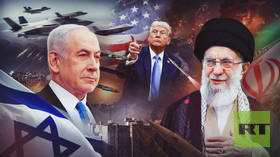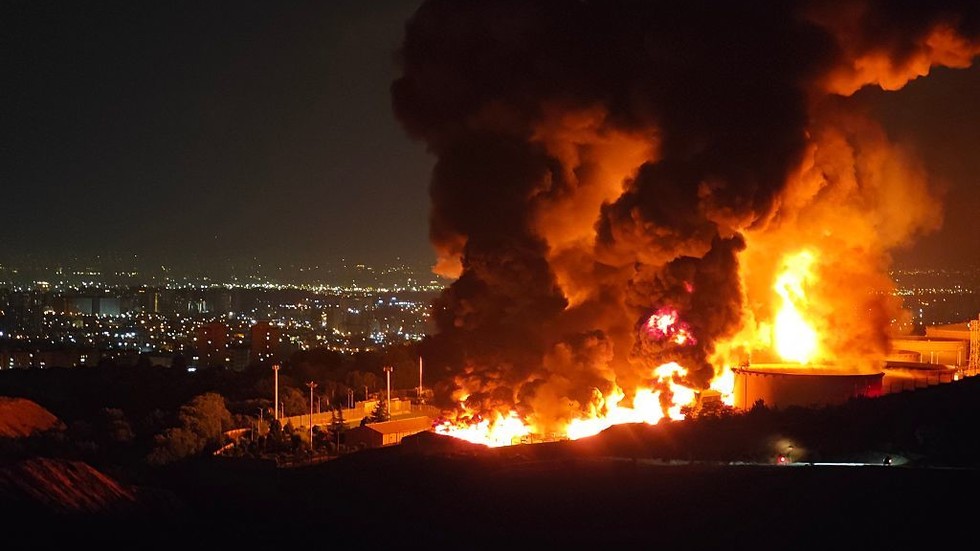Israel’s attack on Iran, which began last Friday, is the culmination of nearly 25 years of relentless transformation across West Asia. This war was not born overnight, nor can it be explained by simplistic moral binaries. What we see now is the natural outcome of a series of miscalculations, misread ambitions, and power vacuums.
There are no neat lessons to be learned from the last quarter-century. The events were too disjointed, the consequences too contradictory. But that doesn’t mean they lacked logic. If anything, the unfolding chaos is the most coherent evidence of where Western interventionism, ideological naivety, and geopolitical arrogance have led.
Collapse of the Framework
For much of the 20th century, the Middle East was kept within a fragile but functioning framework, largely defined by Cold War dynamics. Superpowers patronized local regimes, and the balance – while far from peaceful – was stable in its predictability.
But the end of the Cold War, and with it the dissolution of the Soviet Union, dissolved those rules. For the next 25 years, the United States stood uncontested in the region. The ideological battle between “socialism” and the “free world” vanished, leaving a vacuum that new forces quickly sought to fill.
Washington tried to impose the values of Western liberal democracy as universal truths. Simultaneously, two other trends emerged: political Islam, which ranged from reformist to radical, and the reassertion of authoritarian secular regimes as bulwarks against collapse. Paradoxically, Islamism – though ideologically opposed to the West – aligned more closely with liberalism in its resistance to autocracy. Meanwhile, those same autocracies were often embraced as the lesser evil against extremism.
Collapse of Balance
Everything changed after September 11, 2001. The terrorist attacks did not just provoke a military response; they triggered an ideological crusade. Washington launched its so-called War on Terror, beginning with Afghanistan, and quickly expanded it into Iraq.
Here, the neoconservative fantasy took hold: that democracy could be exported by force. The result was catastrophic. The Iraq invasion destroyed a central pillar of regional balance. In the rubble, sectarianism flourished and religious extremism metastasized. Islamic State emerged from this chaos.
As Iraq was dismantled, Iran rose. No longer encircled, Tehran extended its reach – to Baghdad, to Damascus, to Beirut. Turkey, too, revived its imperial reflexes under Erdogan. The Gulf states, meanwhile, began throwing their wealth and weight around with greater confidence. The US, the architect of this disorder, found itself mired in endless, unwinnable wars.
This unraveling continued with the US-imposed Palestinian elections, which split the Palestinian territories and empowered Hamas. Then came the Arab Spring, lauded in Western capitals as a democratic awakening. In truth, it hastened the collapse of already brittle states. Libya was shattered. Syria descended into a proxy war. Yemen became a humanitarian catastrophe. South Sudan, birthed under external pressure, quickly fell into dysfunction. All of it marked the end of regional balance.
Collapse of the Margins
The end of authoritarianism in the Middle East didn’t usher in liberal democracy. It gave way to political Islam, which for a time became the only structured form of political participation. This in turn triggered attempts to restore the old regimes, now seen by many as the lesser evil.

Egypt and Tunisia reimposed secular order. Libya and Iraq, by contrast, have remained stateless zones. Syria’s trajectory is instructive: the country moved from dictatorship to Islamist chaos and now toward a patchwork autocracy held together by foreign patrons. Russia’s 2015 intervention stabilized the situation temporarily, but Syria is now drifting toward becoming a non-state entity, its sovereignty unclear, its borders uncertain.
Amid this collapse, it is no coincidence that the key powers in today’s Middle East are non-Arab: Iran, Turkey, and Israel. Arab states, while vocal, have opted for caution. In contrast, these three countries each represent distinct political models – an Islamic theocracy with pluralist features (Iran), a militarized democracy (Turkey), and a Western-style democracy increasingly shaped by religious nationalism (Israel).
Despite their differences, these states share one trait: their domestic politics are inseparable from their foreign policy. Iran’s expansionism is tied to the economic and ideological reach of the Revolutionary Guard. Erdogan’s foreign escapades feed his domestic narrative of Turkish resurgence. Israel’s doctrine of security has shifted from defense to active transformation of the region.
Collapse of Illusions
This brings us to the present. The liberal order that peaked at the turn of the century sought to reform the Middle East through market economics, elections, and civil society. It failed. Not only did it dismantle the old without building the new, but the very forces meant to spread democracy often empowered sectarianism and violence.

Now the appetite for transformation has dried up in the West, and with it the liberal order itself. In its place we see a convergence of systems once thought irreconcilable. Israel, for instance, no longer stands as a liberal outpost surrounded by authoritarian relics. Its political system has grown increasingly illiberal, its governance militarized, and its nationalism more overt.
The Netanyahu government is the clearest expression of this change. One may argue that war justifies such measures – especially following the October 2023 Hamas attacks. But these shifts began earlier. The war simply accelerated trends already in motion.
As liberalism recedes, a new kind of utopia takes its place – not democratic and inclusive, but transactional and enforced. Trump, the Israeli right, and their Gulf allies envision a Middle East pacified through military dominance, economic deals, and strategic normalization. The Abraham Accords, framed as peace, are part of this vision. But peace built on force is no peace at all.
We are witnessing the result. The Iran-Israel war is not a bolt from the blue. It is the direct consequence of two decades of dismantled norms, unchecked ambitions, and a deep misunderstanding of the region’s political fabric. And as always in the Middle East, when utopias fail, it is the people who pay the price.
Read the full article here
